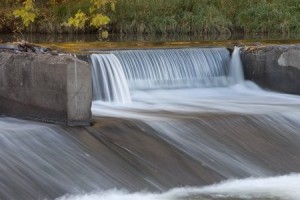 You may have a property that has a stream running alongside it. In areas that are dry or have extensive gardens or orchards, you may require more water than you would like to pay for from a town supply. It could also be the case that you’re on rain or bore water supply and these are not adequate for your needs. There are many reasons that you may wish to source water from a nearby stream. So how can you do this?
You may have a property that has a stream running alongside it. In areas that are dry or have extensive gardens or orchards, you may require more water than you would like to pay for from a town supply. It could also be the case that you’re on rain or bore water supply and these are not adequate for your needs. There are many reasons that you may wish to source water from a nearby stream. So how can you do this?
If your requirements are only for the odd bucket, you’re probably fine to go ahead with a “bucket on a rope” solution to your problem. But if you require larger quantities, then a bucket probably won’t cut it and your back will start complaining! A more permanent solution is required.
Water Pumps
Water pumps come in a range of sizes to suit different jobs. Discuss your water requirements with your local supplier and they will be able to help you get the right set up. Not all pumps will be suitable for your needs.
- Electric Pumps
If the pump site is a long way from your house, a mains-powered electric pump will not be practical unless you have a nearby power outlet or are willing to go to the expense of cabling a dedicated supply. - Diesel or Petrol Pumps
These will be more hardy but are noisier and require fuel and maintenance. - Solar Pumps
A solar powered pump could be a good option if you have good access to sunlight and do not require too high a pressure through your hose and you may need a header tank. - Wind Pumps
Wind pumps will obviously only work when it is windy, so a header tank is essential. This will mean lower water pressure but it is a good eco-friendly solution.
Consents to Draw Water
Just because a waterway runs through your property, it does not mean that you automatically have the right to draw water from a stream or creek. Depending on the quantity of water you wish to take, other properties upstream or downstream could be affected by your actions. The best thing to do to avoid any legal issues later on is to contact your local council and enquire about gaining a consent to take water. This also applies in the case of dam water as storage of surface water reduces the natural flow through natural catchment areas.
Water Filtration
Once you have your consents approved and your water pump set up, you need to ensure that your water intake hose will continue to be effective and free of debris. Attaching a stream water filter to your intake hose will prevent fresh water weeds and floating debris such as leaves or branches creating a blockage. This is important, as if the intake hose is blocked, it could prevent you from sourcing essential water and also put strain on your pump, possibly causing expensive repairs. Some intake filters also offer an option to add chlorine tablets to prevent build up of algae that can also block the hose. Consider the effect any treatment may have on your end user of the water! You can find out more about water filtration at www.damweedguard.co.nz.
If you wish to source the water for drinking yourself, pay special attention to water quality. Consider a secondary filter and get specialist advice on stream water quality. If there is a dead animal upstream of your water intake, this could cause serious health issues.

